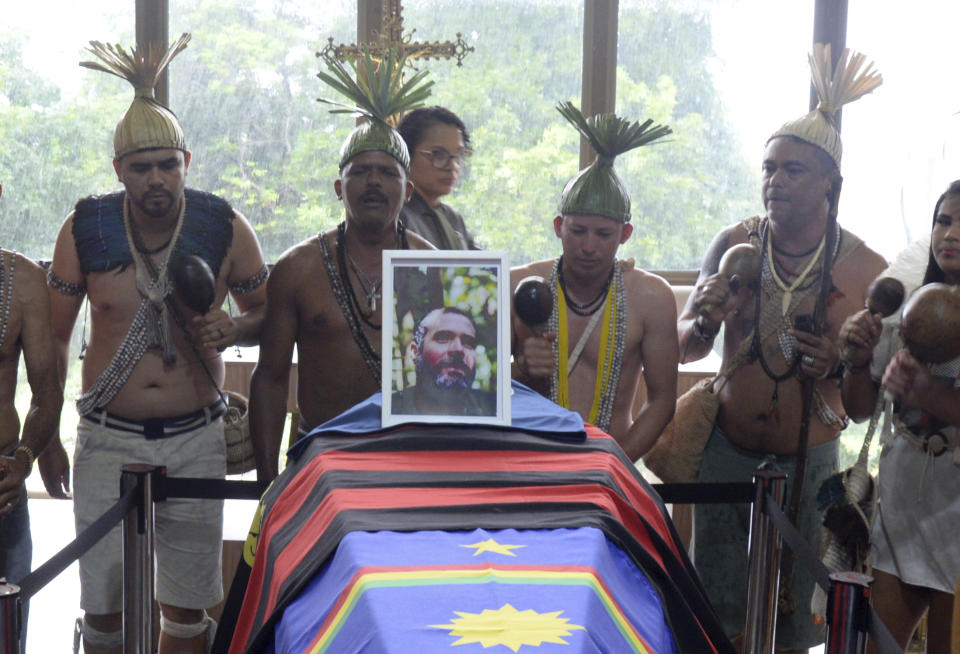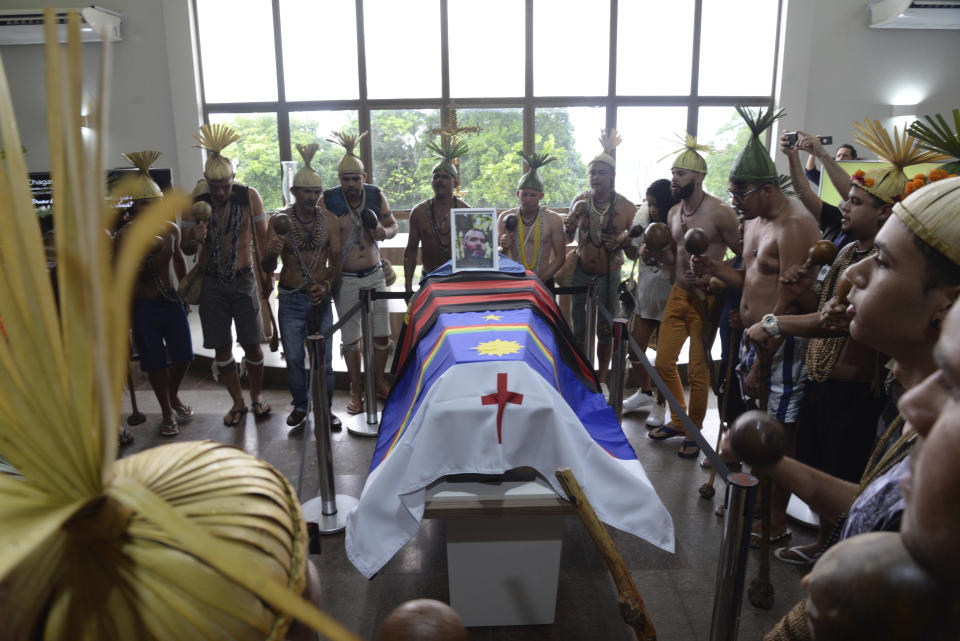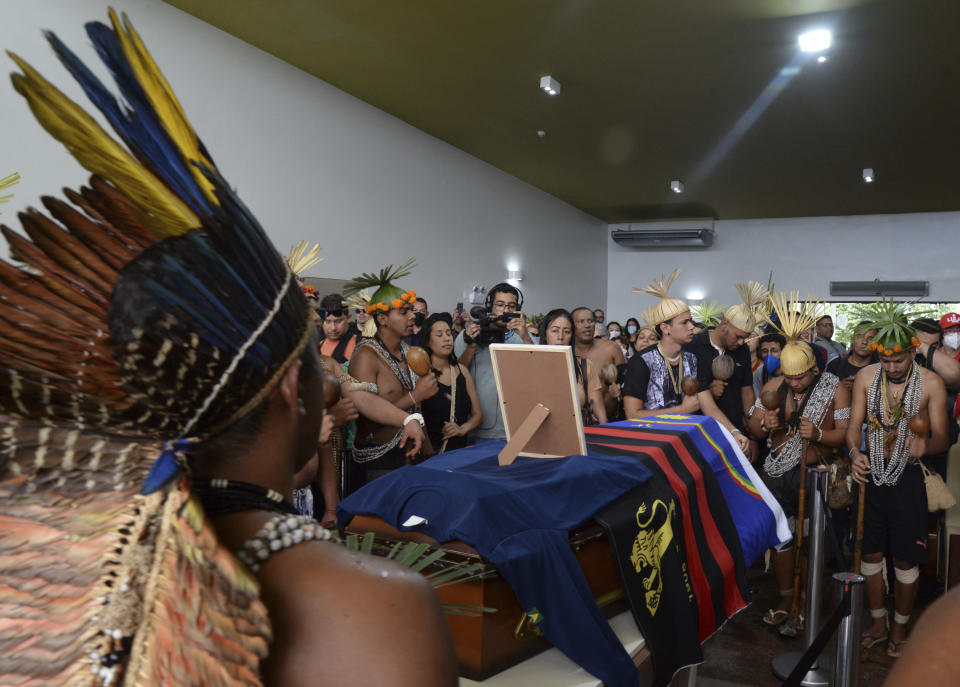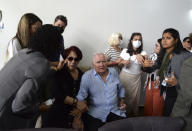Indigenous and family mourn expert killed in the Amazon
RECIFE, Brazil (AP) — Members of Brazilian Indigenous groups, friends and family members gathered Friday to mourn Bruno Pereira, an expert on Indigenous peoples who was killed with a British journalist during a trip to the heart of the Amazon rainforest. His was cremated following the ceremony.
Pereira, who was on leave from Brazilian government agency for Indigenous affairs, and reporter Dom Phillips were allegedly killed by a fisherman on June 5, the day they disappeared in the Javari Valley region, close to Brazil's border with Peru and Colombia.
Members of Xukuru Indigenous group sang mourning songs close to Pereira's sealed casket, with his framed picture on top, during the ceremony in Recife, where a banner demanded “JUSTICE for Dom and Bruno.”
Marcos Xukuru, a chief of the Xukuru group, said he and others had come “to honor our warrior ... warrior Bruno who becomes a martyr for all of us, for the Indigenous cause ... for those who fight in defense of life,” he told journalists.
Thany Rufino, Pereira’s sister in law, thanked those “who prayed, searched, worked, represented Bruno.”
"May God in his greatness repay them all and their families. Now, we are dedicated to love, forgiveness and prayer,” she said.
Police investigators said last week the bodies of the two men were found in deep into the forest, where they were taken by their killer. Police have arrested three people in connection with the crime.
Pereira had been trying to help Indigenous groups of the Javari Valley create a 350-kilometer (220-mile) trail marking the southwestern border of their territory to help protect it from encroachment by ranchers and other outsiders.
He was helping Phillips during a reporting trip to the region when they were attacked. The journalist, whose funeral was scheduled for Sunday in in Rio de Janeiro, was writing a book on Amazon preservation.
Pereira, 41, was born in the northeastern city of Recife and started his professional career as a journalist. But his interest in Indigenous affairs and languages — he learned four of them — led him to work for the government's National Indian Foundation.
He quickly became one of the country’s biggest experts on the Javari Valley, where he used to spend months at work, with little contact with the outside world. His wife Beatriz Matos, an anthropologist, encouraged his mission. They had two children.
Pereira lived in Atalaia do Norte, the closest city to the Javari Valley, for many years.
Pereira told The Associated Press in an off-the-record conversation in November that he was waiting for the end of the Jair Bolsonaro presidency to return to the Indigenous agency and meanwhile would work with an Indigenous people's association.
Pereira also wanted to spend more time in Belém, one of the biggest cities of the Amazon and home of his wife, watching his 2- and 3-year-old children grow.
His casket was covered with three items representing some of his passions; the flag of the state of Pernambuco, where he grew up, another of his favorite soccer team, Sport, and a shirt of the Indigenous group he had been working for.
____ Savarese reported from Sao Paulo.

 Yahoo News
Yahoo News 










